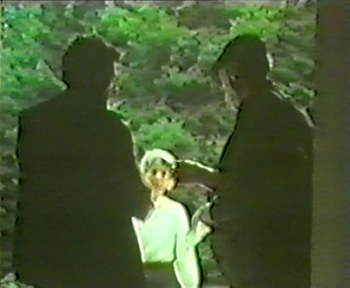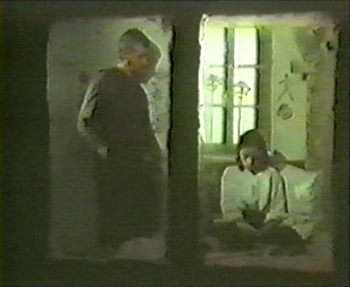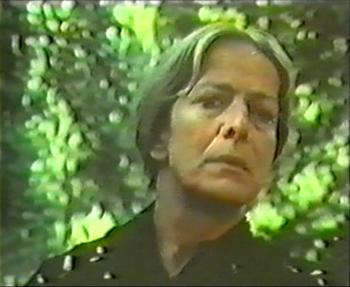Emir Kusturica grew up in Gorica, in suburbs close to Sarajevo, a "respectable" family. His father, Murat, worked for the Ministry of Information of Bosnia-Herzegovina. Undoubtedly more by curiosity than by affinity, Emir as a young person attended not very advisable gangs of petty crime. These frequentations, to more put on the account of the rebellion than on social origin, were not without worrying the Kusturica family. Their only son was not to become one of these criminals whom he frequented. The solution was to send him to make studies abroad. This therapy was to solve his problematic childhood.
Before arriving at the prestigious school of cinema of Prague, the FAMU, Emir gave few signs of the immense talent which he was going to develop. It is thus almost by chance that he found himself at 18 in the academy which has formed Miloš Forman, Jirí Menzel or Goran Paskaljević.
Emir: "A that time, I was like a virgin ground. I was very curious, but I did not like the school and did not have a particular affiliation with the cinema. From this point of view, my career in the cinema is a coincidence. But a friend of my father, Hajrudin Krvavać, was at that time directing institutional films, and once took me along on a shooting. I was immediately seduced by the variety of knowledge and experiment one could benefit with the cinema. When I returned to Sarajevo after having made a good school of cinema, I realized how much my area, my memories of childhood, my personal experiments were sufficiently rich to reflect and enrich stories. It is the first time that I fully carried out what the cinema was."
The communism in Yugoslavia at that time was trying to give a standard cultural model to the cinema and television. That was connected with propaganda, and a point of honor was put to accentuate the resemblances between the Serbs and the Croats, the Croats and the Moslims, etc. Thus, the industry of film of Yugoslavia did not like the historical, national or religious topics. It is these times when the directors were driven by the Party that Emir Kusturica wanted to denounce in his burlesque film-in-the-film sequence of Underground. Only the Second World War was tolerated as a film subject, since it put in evidence for the only time of the history of Yugoslavia, that the whole country was linked to fight together a foreign enemy. Thus, two of the first subjects of Emir Kusturica relate to the Second World War and the holocaust.
The "first films" are :
|
Original title : Guernica (1978)
Language : czech
Length : 25 mn
Script : Pavel Sykora, Emir Kusturica
Photography : (black & white) Emir Kusturica
Awards :
- First prize of the Karlovy-Vary student film festival
|
FAMU student film, the story is based on a Antonije Isaković novel.
It tells the history of a Jewish little boy facing the fear of the anti-semitism. His father brings him in 1937 to the Exposition Universelle in Paris, where he discovers Picasso's painting. Some years later, the nazis come and persecute the Jews. The father explains to his son : "They just want to examinate us because we have a big nose." When his family is taken away, the boy stays alone at home, he looks at the family photos and cuts all the noses off. He sticks them together an calls it "Guernica".
At the beginning of the film, te father tells to his son that a German soldier discovering Pablo Picasso's painting Guernica asked Picasso :
- Did you do that ?
- No, YOU did it.
First real 35mm film, it deals with big emotion and intelligence of a difficult and painful subject, specially with such a short format. The image is highly worked out, and we immediately see that the young Emir had swallowed the work of all the big masters of the cinema : vertical travellings, reflections (mirrors, water, windows), self projection of the image of the others, importance of the family, etc. This film was already a condensed version of the visual explosion that was yet to come.




 This film is available on a French short films compilation : Le Court des Grands. An interesting interview of Emir Kusturica on this first film, as well as a pertinent analysis feature as bonus for this film. The picture quality is remarkable, but the French subtitles are imposed.
This film is available on a French short films compilation : Le Court des Grands. An interesting interview of Emir Kusturica on this first film, as well as a pertinent analysis feature as bonus for this film. The picture quality is remarkable, but the French subtitles are imposed.
This double DVD contains the following films :
- George Lucas : 1:42.08 to qualify (1966) - 8 mn
- Ridley Scott : A boy and a bicycle (1965) - 27 mn
- Robert Zemeckis : The lift (1972) - 7 mn
- Lars von Trier : Nocturne (1980) - 9 mn
- Terry Gilliam : Storytime (1968) - 9 mn
- Paul Verhoeven : A lizzard too much (1960) - 35 mn
- Tony Scott : One of the missing (1969) - 25 mn
- Emir Kusturica : Guernica (1978) - 18 mn
- Luc Besson : L'avant-dernier (1981) - 10 mn
- Roman Polanski : Le gros et le maigre (1960) - 16 mn
- Jane Campion : Peel (1982) - 9 mn
- Stephen Frears : The burning (1967) - 30 mn
This exceptional DVD is available on Amazon.fr.
|
Original title : Nevjeste Dolaze (1978)
Language : serbo-croate
Length : 73 mn
Music : Zoran Simjanović
Script : Ivica Matić
Photography : Vilko Filać
|
Jelena, a woman of character, rules an inn in an isolated place in the countryside. She lives with her two sons : Martin and Jakov. Martin has been married to Kata for 5 years, but never succeeded in having a child. Jakov sleeps with his mother in postures suggesting incest, but he is in love with Kata. Each night he hears her cries, the sexual acts with her husband inevitably finish with violence. One day, Jakov can't stand anymore, he leaves, and Kata is found dead the next morning. Two characters arrive then : an old man, who turns to be the father of Martin ; he settles and declares being returned to die here. And a girl, that Martin will keep as his new wife...
Ivica Matić should have directed himself this film he had written, but he died prematurely, at the age of 28.
Emir Kusturica finally does it, daring a highly taboo subject for the time : sexuality, incest. Emir Kusturica declares even in Le petit livre d'Emir Kusturica (Bouineau, 1993) : "The brides are coming is undoubtedly the most courageous subject I ever made. It deals with the transmission of energy through the family, for a better comprehension, the whole thing put in image in a very stylized way."
Produced by the television of Sarajevo, the film will however never be broadcast, being considered as too disturbing. The film is nonetheless of a great intelligence, and starts in a very promising way the future career of the young director :
- The film is full of Greek mythology (the myth of Sisyphus with Kata raising buckets of water, the myth of Oedipus, for the incest, and the myth of Ulysses, for the return of the father).
- The film presents a very family-oriented topic, through the central figure of the mother.
- There is already a scene of magic realism : during a slow traveling along a wall, we see several times the same person speaking, as if she was duplicated. In an other direction, this scene precedes the vertical traveling lime kiln in Time of the Gypsies. One will also note the circular traveling filming Martin, desperate, from the interior of the circle of the drunk customers raping his wife... These plans are already strongly influenced by the style of Andrei Tarkovski.
- When Jelena reveals to Martin that the person who has just left was his father, Emir uses the famous "trick" that Alfred Hitchcock developed in Vertigo by approaching the camera to the actors while decreasing the focal lens : the set seems to "run away" whereas the characters keep the same size, thus reinforcing their isolation.
- The animals make irruptions in the film : a cow enters the inn and a small kitten gives a smile during the tense meeting between Martin and his father. Also, Jakov in a moment of poetry compares man to a fish, preceding the central topic of Arizona Dream.
- A first cameo appearance is to be noted : Emir Kusturica plays truck driver. We can see his profile, smoking a cigarette (see below the last picture).
- Finally, there is also a film inside the film sequence with a TV broadcast showing ice skating, and which seems more interesting to Jelena than the return of her former lover...
Images :









 This film is available on a French short films compilation : Le Court des Grands. An interesting interview of Emir Kusturica on this first film, as well as a pertinent analysis feature as bonus for this film. The picture quality is remarkable, but the French subtitles are imposed.
This film is available on a French short films compilation : Le Court des Grands. An interesting interview of Emir Kusturica on this first film, as well as a pertinent analysis feature as bonus for this film. The picture quality is remarkable, but the French subtitles are imposed.





